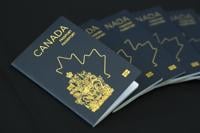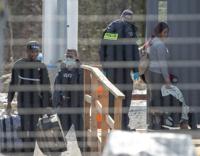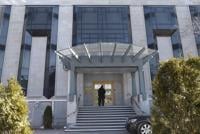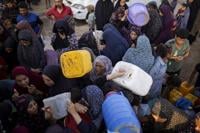OTTAWA - The federal government is cutting the number of spots available in its refugee humanitarian and permanent residency streams for next year.
The updated immigration levels plan released this week shows 49,000 spaces for refugees seeking permanent residency in 2026, down from about 58,000 this year.
The şĂÉ«tv Council for Refugees points out the federal budget also contains a one-time initiative to grant permanent residency to an additional 115,000 protected individuals who are already in Canada.
Gauri Sreenivasan, şĂÉ«tv Council for Refugees co-executive director, said her group sees the new levels plan offering a "mixed result" for refugees.
"We have almost 150,000 refugees in the backlog waiting for that signal that Canada is their permanent home, waiting for the opportunity to bring their families," she said, adding the measure to grant permanent residency to 115,000 people in Canada is "a special recognition, in a sense, of the backlog waiting."
"At the same time, that was embedded in an announcement that overall continues to shrink the share of our immigration levels that are dedicated to the humanitarian component of Canada's immigration system."
The levels plan also proposes giving permanent residency to 5,800 people under special humanitarian programs set up to welcome individuals who fled to Canada from Hong Kong, Ukraine and Sudan.
Data from the briefing binder issued to Immigration Minister Lena Diab when she took on the portfolio says the government planned to admit 5,300 permanent residents through the Hong Kong, Ukraine and Sudan programs in 2025.
Roy Lee of the Hong Kong Pathways Alliance said his group wants to see a one-time program to accelerate permanent residency for special humanitarian programs, citing a backlog of more than 50,000 applications.
"That little increase in the quota is obviously not enough to clear the backlogs in our pathways," Lee told The şĂÉ«tv Press.
"For the Hong Kong pathway, every month we have more than 1,000 applicants … I think it's not enough to even reduce the backlog number in one week for the Hong Kong pathway."
Diab's binder says the wait time for permanent residency through the humanitarian and compassionate pathway is between 12 months and 50 years.
A senior official from Immigration, Refugees and Citizenship Canada said Wednesday demand for these programs can exceed the number of spaces in any given year and applications will continue to be processed.
The Hong Kong permanent residency pathway is open to new applicants until Aug. 31, 2026.
Lee said he first came to Canada in January 2023 and applied for permanent residency in May 2024. He said when he applied, the wait time was around six and a half months.
The government's immigration wait time web page currently lists an estimated 98 month processing time for a humanitarian permanent residency application filed in May 2024.
The şĂÉ«tv government opened the Hong Kong immigration pathway due to China's political repression.
Lee said that, due to the prolonged wait, he expects to lose health coverage once he graduates from university. He has Type 1 diabetes.
"I know that I will not have the coverage after I graduate. I try to save some of the insulin," Lee said.
"So I keep skipping meals. I may be only eating one meal or two meals per day."
Derek Chan is another former Hong Kong resident waiting for his permanent residency application to be processed. He was arrested during pro-democracy protests in Hong Kong in 2019 and came to Canada in 2023 after completing his sentence.
He said he received "acceptance in principle" in May this year but has received no further updates.
"For those coming to Canada, they have already made their choices. They give up everything in Hong Kong, their careers, their family ties, their friends," Chan said.
"So every time we check for the latest processing time, it will be longer than our last check. So it's very difficult for us to plan for anything because it looks like we are stuck here."
Lee said that most people from Hong Kong who are waiting for their permanent residency have only their passports for identification. He said these expire within 10 years, and renewing them means going to a Chinese consulate, where laws against the Hong Kong pro-democracy protests apply.
"They can arrest us, detain us or send us back to Hong Kong or even China through the national security law in Canada in the Chinese consulate," Lee said.
"So we are so afraid of being detained and sent back to Hong Kong or China."
This report by şĂÉ«tvwas first published Nov. 6, 2025.















































